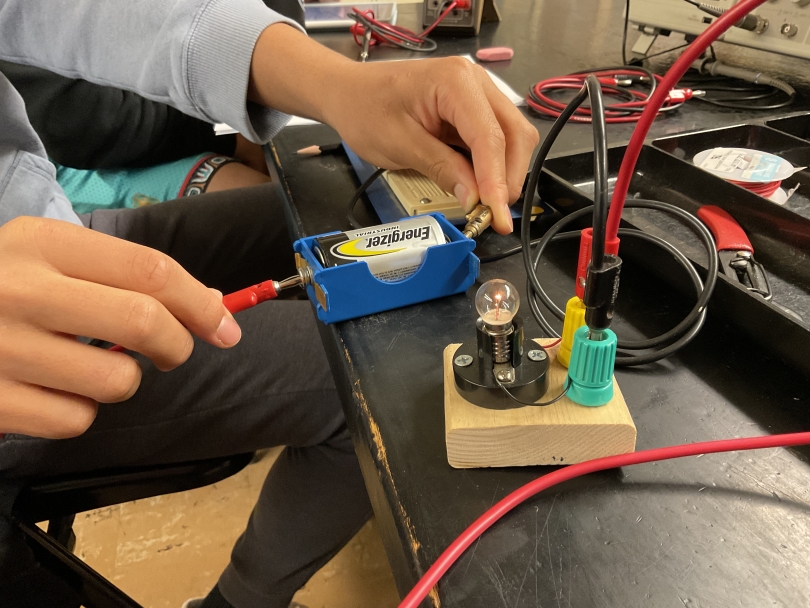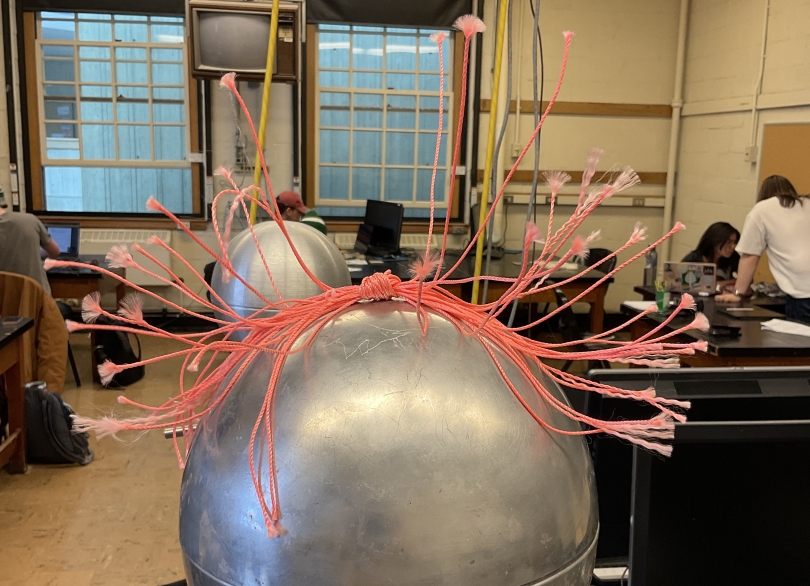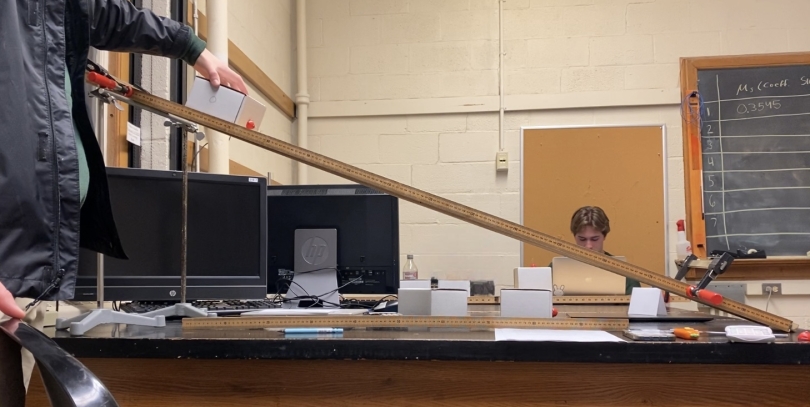
A Look Inside of Physics 13 and 14: My Labs!
Of the classes I've taken at Dartmouth, the lab components of my physics courses have been some of my most demanding but most interesting weekly activities! In case you don't know what a "Lab" at Dartmouth is, in several STEM-related classes here, you'll meet with a small group of students from your class for a few hours each week and conduct experiments or demonstrations related to what you learn! I've been taking Physics 13 and Physics 14 this spring and winter, so I've had physics labs every other week or so! Here's how they've been so far:
How do STEM labs actually work?
Usually, you'll have a pre-laboratory or "pre-lab" assignment to complete or a video to watch–something to familiarize you with the experiment or phenomena you'll be testing in your lab. In physics, this normally looks like a worksheet of definitions or a video to watch to become familiar with the topics. After that, it's time for the lab!

In lab courses at Dartmouth, you could do anything from experimenting with magnetic fields to leaving the classroom for field trips and taking real-world data. Most of the learning during physics labs occurs in the classroom, where you and a partner will complete an experiment. You'll likely have lab instructors walk you through the lab and undergraduate student teaching assistants (TAs) to help. Your lab instructor will explain the experiments and whatever relevant background information you need to know, and you'll have the next few hours to perform your experiments and tests!

Labs can be long and challenging, but they can also be exciting and rewarding. Often, I understand concepts from class much better after seeing them in practice in the lab! Dartmouth requires all students to take at least one lab course at Dartmouth, regardless of their major. Some students look to fulfill this requirement as quickly as possible, but it is an integral part of the liberal arts curriculum here at Dartmouth—you'll be able to experience at least one lab course, just in case you might find out that you love it!

After labs, you'll likely complete a post-lab assignment or write a lab report. If you like research and experiments, writing reports can actually be fun (in my opinion). Through labs here, you'll get the chance to learn physics—or chemistry, biology, earth sciences, CS, archaeology, and more—and practice these subjects and see them in the real world! That's the learning that Dartmouth prioritizes, and it's why you'll have to take at least one lab course here, regardless of your major. If this post intrigues you, you could choose to fulfill this requirement with physics—or any other course with a lab here!
Martin

















